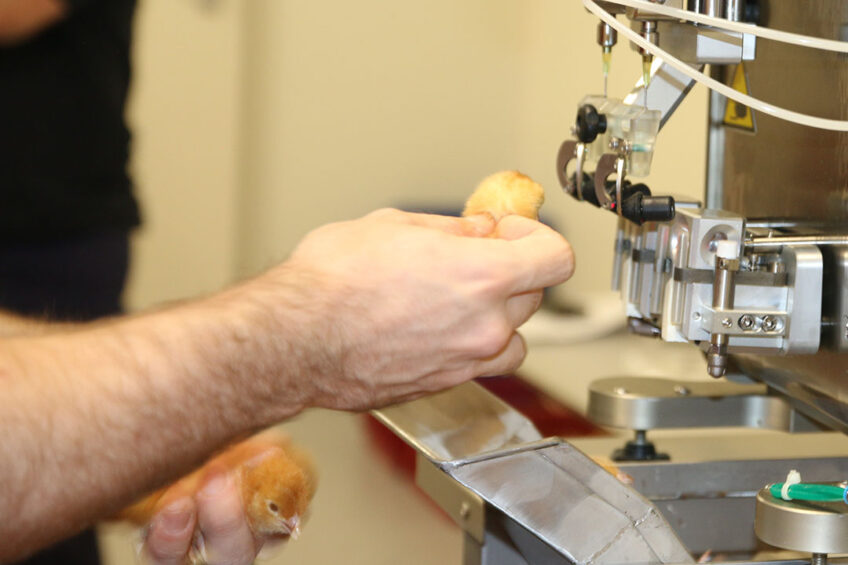While the highly pathogenic avian influenza (HPAI) situation in South African poultry flocks has eased considerably in recent weeks, concerns remain about the possible future resurgence in outbreaks as the country enters the winter months.
Over of the last disease “season,” the South African Poultry Association reported that 10 million of the nation’s poultry were lost to the disease, and many small farmers lost their livelihoods. The country was hit simultaneously by two HPAI virus serotypes — H5N1 and H7N6.
A gap in vaccine development leaves South Africa’s poultry producers vulnerable to future outbreaks, reported OFM last week.
While vaccines have been developed against the globally prevalent H5 virus “family,” there remains no vaccine to protect poultry against H7 variants.
According to the source, the national government has set stringent biosecurity standards for producers to achieve before they can receive the necessary authorization to commence a vaccination program. These standards are close to impossible for smaller producers to meet.
A further barrier has been the difficulty of obtaining compensation from the administration when healthy poultry are culled in order to control the spread of HPAI. OFM reports that this makes poultry owners reluctant to report signs of ill-health in their birds.
Since South Africa’s first HPAI cases in poultry in April of 2023, a total of 144 outbreaks have been officially confirmed, directly impacting more than 13.1 million birds. This covers both virus variants, and is according to notifications submitted to date to the World Organisation for Animal Health (WOAH). Very few of these outbreaks started since the beginning of 2024.
The latest report covers an outbreak linked to the H7N6 virus variant in South Africa’s Northwest region in early October of last year.
HPAI returns to Gabon
Surveillance samples collected at a market have revealed the presence of the H5N1 HPAI virus serotype, reports the veterinary agency of Gabon (Gabonese Republic).
According to the WOAH notification, the two samples were taken from a poultry market in Libreville — the capital of the Central African state — early last month. Tracing the farm of origin was not possible.
The source of the virus is unknown.
The result represents the return of this virus to Gabon following a hiatus of more than two years.
The last HPAI outbreak in the country was in April 2022. Testing positive for the H5N1 virus serotype at the time was a farm with 15,500 poultry in the northwestern region of Estuaire, which includes Libreville.
FAO supports African nations to control animal diseases
Progress and challenges of controlling high-priority transboundary animal diseases such as HPAI were among the key topics at a recent conference in Africa.
According to event organizer the United Nations’ Food and Agriculture Organization (FAO), discussions focused on strategies for sustainable livestock farming on the continent through enhancing One Health system capacity.
Supported by the World Health Organization, WOAH and FAO, One Health is an integrated and unifying approach to balance sustainably and optimize the health of people, animals, and ecosystems.
Latest update from the FAO on the HPAI situation in sub-Saharan Africa notes two further outbreaks of HPAI in poultry.
Affected was one poultry flock of unspecified type in Burkina Faso, and one involving guinea fowl in Niger. In both these West African states, these outbreaks involved the H5N1 virus variant.
Europe: new HPAI cases reported in wild animals
Over the past two weeks, all recently confirmed HPAI cases have involved wild species. There have been no outbreaks over this period in commercial or backyard poultry in the region.
According to notifications from the respective national veterinary authorities to WOAH, there have been five further cases in swans in Poland, three affecting sea gulls in northwestern France, and an individual gull found in the northwest of Spain. In each of these cases, presence of the H5N1 HPAI virus serotype was confirmed.
Furthermore, the Norwegian agency has notified WOAH about a new case in an “unusual host.”
It appears that a walrus found dead near the Polar Institute in Svalbard in June of 2023 was infected with an HPAI virus of the H5 family.



